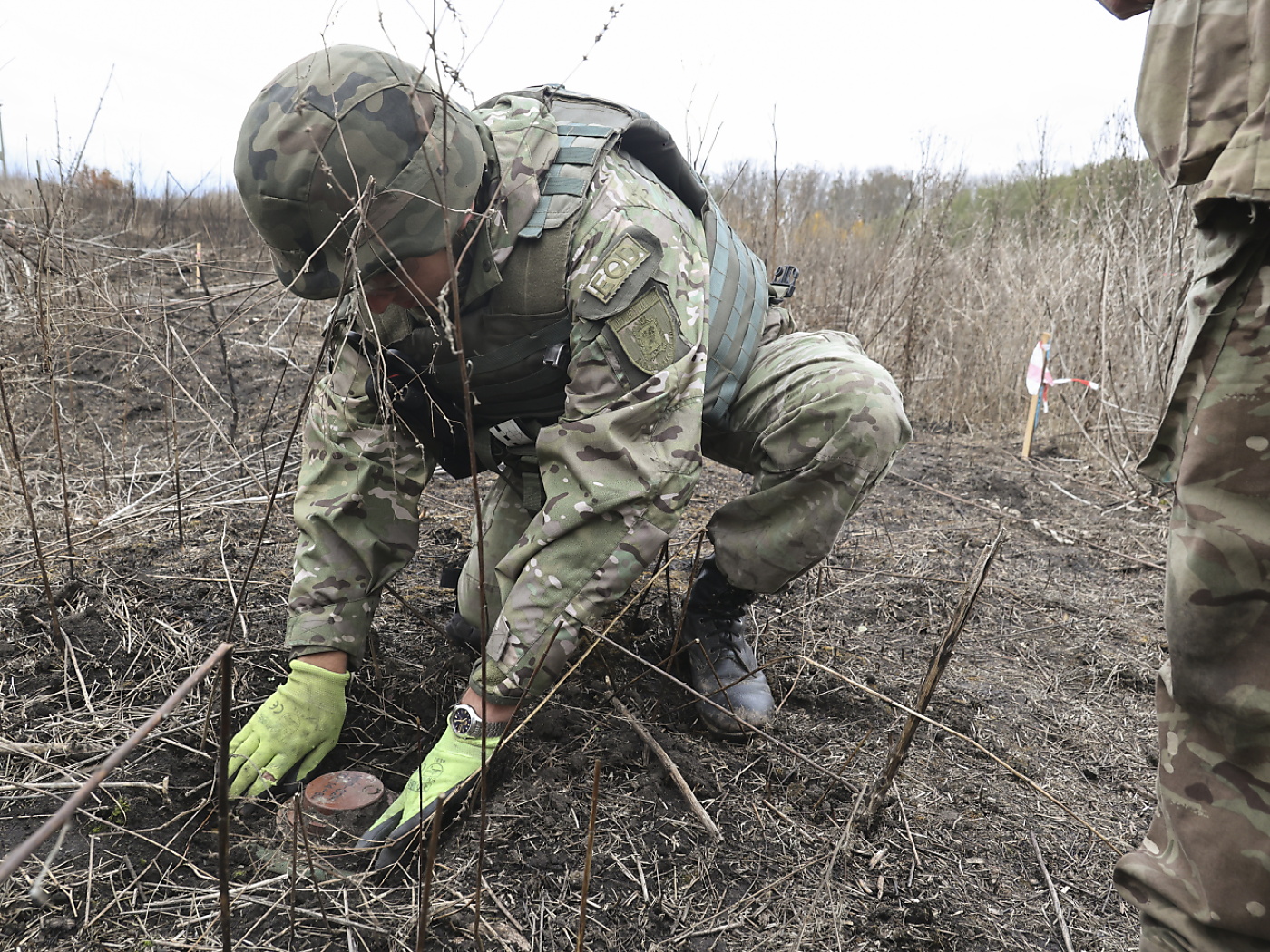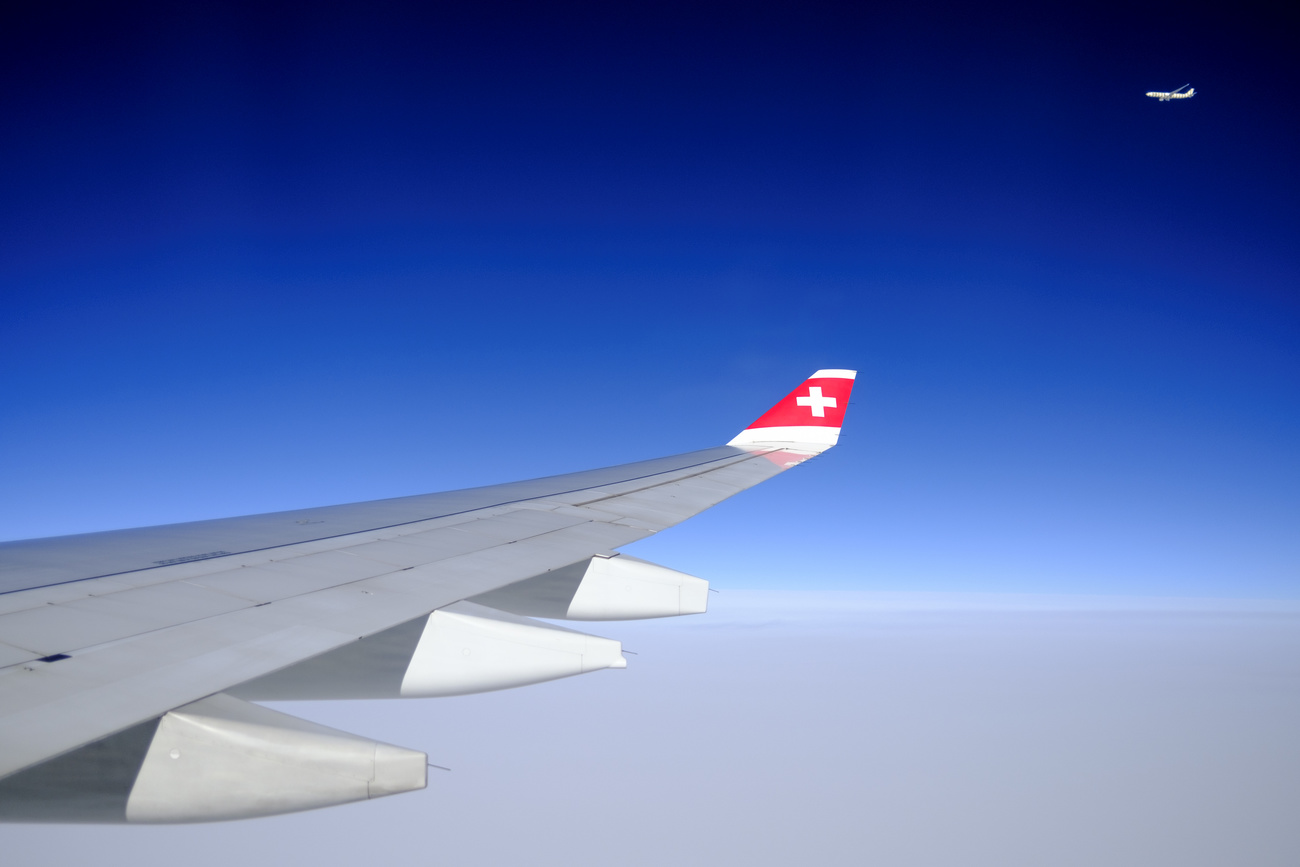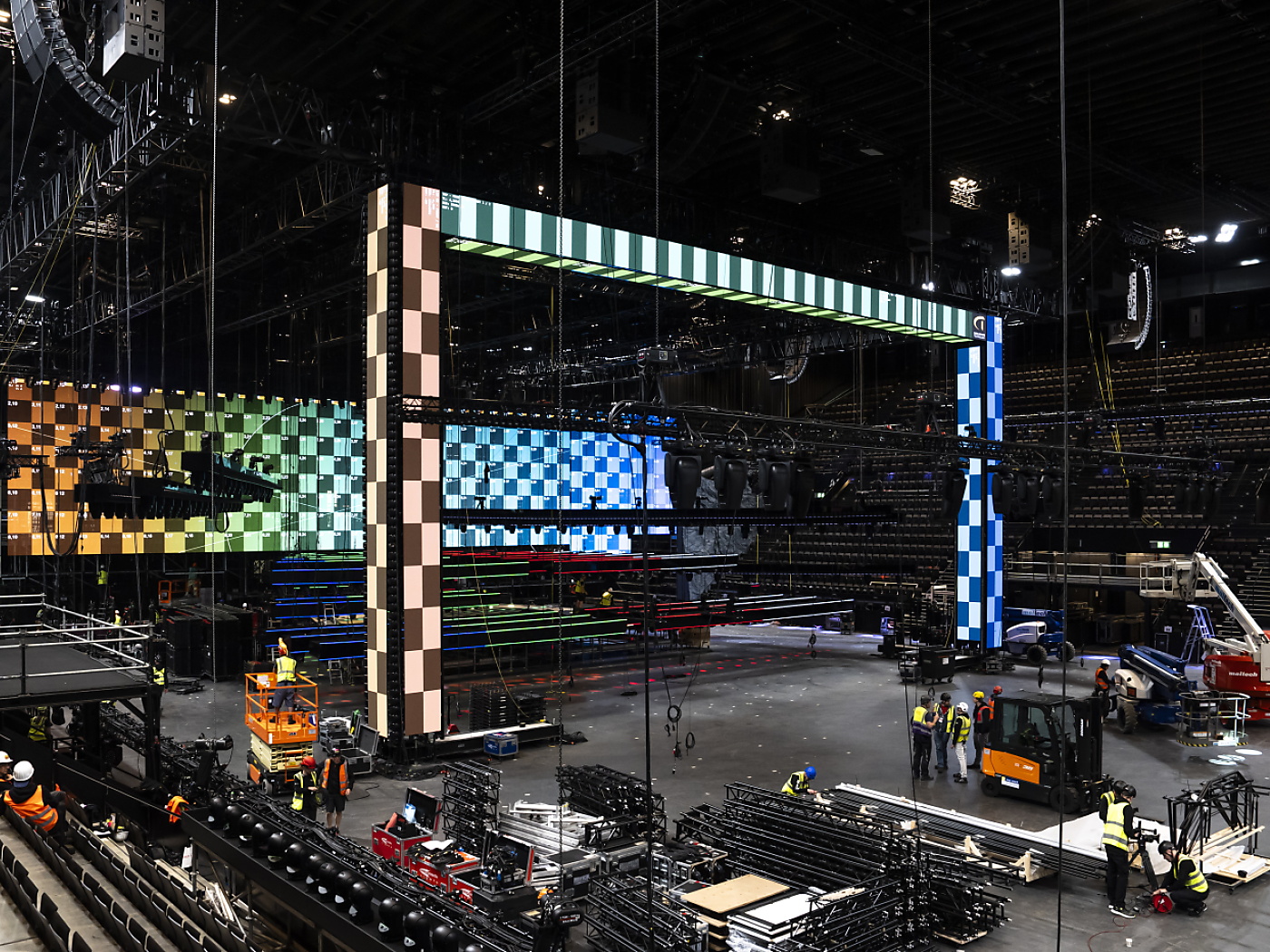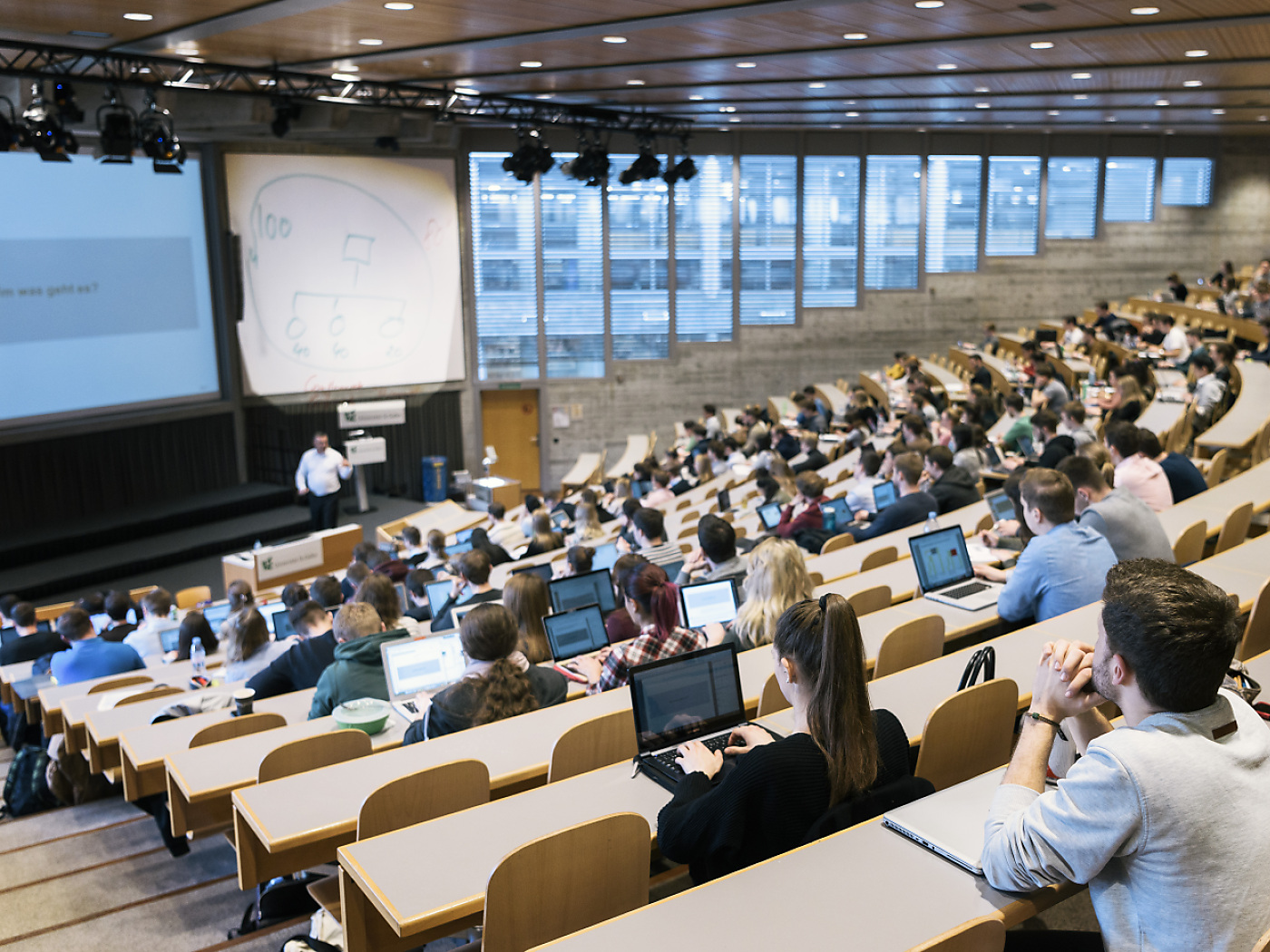Over 70% of accessible land in Ukraine cleared of mines

More than 70% of accessible land in Ukraine is now free of anti-personnel mines and explosive devices, according to the Swiss Foundation for Mine Action (FSD). They announced on Friday that they would be testing a new drone in the coming weeks.
Despite the scale of the challenge “we can be optimistic” said its director Hansjörg Eberle in Geneva. Since the beginning of the conflict, the FSD has examined almost 120km2, says the organisation on the occasion of International Day for Mine Awareness and Assistance in Mine Action. Thanks to its efforts and those of other active institutions, thousands of hectares have been returned to agriculture, infrastructure and the population.
+ Get the most important news from Switzerland in your inbox
The FSD decontaminated 2.5 km2 of land in the Chernihiv, Kharkiv, Donetsk and Kherson regions. Nearly 400,000 people now know how to spot mines. “Every day, explosive devices are removed,” stated the organisation.
A partnership with the Ukrainian NGO Ukrainian Center for Humanitarian Protection (UCHP) was established a few months ago. The FSD is providing support in demining techniques, as well as in the management of systems to guarantee sustainable initiatives.
Meeting planned in Geneva
In the coming weeks, the FSD will also be testing a new drone equipped with ground-penetrating radar. According to an official from the organisation, this will enable it to identify anti-personnel mines and unexploded ordnance more quickly and more accurately, thereby speeding up the clearance process. Of the 45,000 km2 accessible, 35,000 had been cleared by the end of last year through investigations and mine clearance.
Switzerland is helping the FSD and many other players on this issue in Ukraine. The Geneva International Centre for Humanitarian Demining (GICHD) assisted the Ukrainian authorities in establishing their new policy to decontaminate four-fifths of its territory by 2033.
Estimates suggest that it will take several centuries to clear the entire country. A follow-up workshop with international donors, with the participation of a Ukrainian deputy minister, is scheduled for next week in Geneva.
Adapted from French by DeepL/ac
How we work
We select the most relevant news for an international audience and use automatic translation tools such as DeepL to translate them into English. A journalist then briefly reviews the translation for clarity and accuracy before publication. Providing you with automatically translated news gives us the time to write more in-depth articles. The news stories we select have been written and carefully fact-checked by an external editorial team.
Did you find this explanation helpful? Please fill out the short survey on this page to help us understand your needs.

In compliance with the JTI standards
More: SWI swissinfo.ch certified by the Journalism Trust Initiative


















You can find an overview of ongoing debates with our journalists here . Please join us!
If you want to start a conversation about a topic raised in this article or want to report factual errors, email us at english@swissinfo.ch.